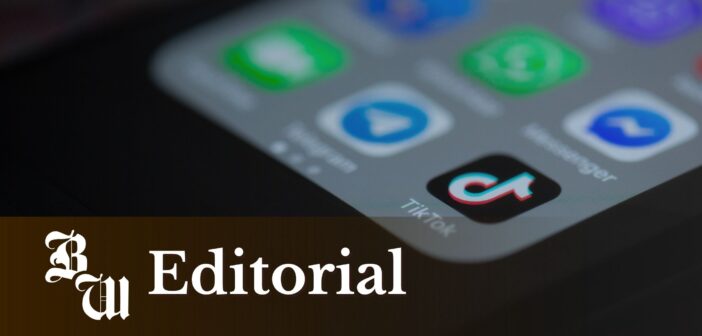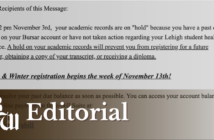Social media is bad, we know that. And yet, we can’t get off it.
We’ve heard time and time again how Facebook made us obsessed with statuses in profile updates, how Instagram heightened celebrity obsession with parasocial relationships, how Snapchat filters triggered face dysmorphia through filters and how Twitter made us obsessed with doom scrolling.
There are countless, immeasurable and irrevocable consequences to a wide scope of applications and digital trends. And yet, one has now triumphed as the most damning: TikTok.
It’s almost cliche to say TikTok is the new big, bad wolf of social compliance. Don’t they say that every time something comes around and touts itself as the most domineering site of our time?
While TikTok might not be the only culprit, we’re particularly troubled by its exacerbation of all things negative. And somehow, even with knowing all the privacy concerns, predatory targeting practices and induced “brain rot” that come with the app, it isn’t enough to just get rid of the thing.
Of the 30 million Gen-Z Americans on TikTok, close to 80% of those users reported the app felt addictive to them.
Even among curious members of The Brown and White Editorial Board, staying away from the app is a continuous struggle.
This is due mostly in part to the power machine learning plays in a seamless, “all-knowing” algorithm that is engineered to prey on our psyche in subconscious ways. In other words, the “For You Page” is training us to be vulnerable to diversions and addictions.
Apps like TikTok are free to download, but the perfectly curated, blandly entertaining and ever-changing feeds come at a price. As users, we bear the cost of making the platform “better” by willingly feeding it data that worsens the cycle.
It’s well-studied how time on the internet corresponds with feelings of social isolation, worsens depression and wanes attention spans.
Most unbearable, however, is the self-loathing that accompanies the time spent scrolling videos.
There’s an ickiness in being stationed as a steady passive receiver of information, regardless of whether it’s good or not. It might be possible that the difference between long- and short-form media is too vast to engage actively with the latter.
So, where do we draw those lines?
As journalists, adapting to new media can be tricky. Good content exists on TikTok, but it’s often buried in the stream of hollow videos and may never be on par with the information available at reputable news sources.
If we choose to give in to the lure and ease of TikTok, as either consumers or content creators, are we cosigning? If we avoid the app, will there be an opportunity cost?
We are fighting forces well beyond us. Mountains of capital, corporations, lobbyists, psychologists and engineers who are all out of sight and out of our control, but have the prowess to infiltrate our lives.
Now, if we can’t commit to the digital detox lifestyle, what can we make of this predicament?
Content on TikTok is indeed more focused on entertainment than social connectivity, but what if there’s still good in the communities that form? Is it possible to balance its assets with a seemingly insurmountable number of drawbacks?
The answer is likely not. Individuals have varying degrees of self-control and codependency regarding TikTok. But on the whole, it’s dangerous.
It’s crucial to recognize that feeling powerless over apps is not entirely our fault. As so many have pointed out, it’s akin to addiction — except an entire generation is being afflicted at the same scale all at once.






Comment policy
Comments posted to The Brown and White website are reviewed by a moderator before being approved. Incendiary speech or harassing language, including comments targeted at individuals, may be deemed unacceptable and not published. Spam and other soliciting will also be declined.
The Brown and White also reserves the right to not publish entirely anonymous comments.
1 Comment
“TikTok addiction makes us feel pathetic — It’s real and not our fault.”
As a students at Lehigh you need entertainment at times. If you choose TikTok, more power to you. The above quote indicates that you know some of the problems associated with TikTok. It, however you may define it, is your fault.
My opinion of social media is that it should be educational and beneficial. If it doesn’t meet the criteria, it’s not worth indulging in.
The same opinion governs my continued reading and interactions with The Brown and White.